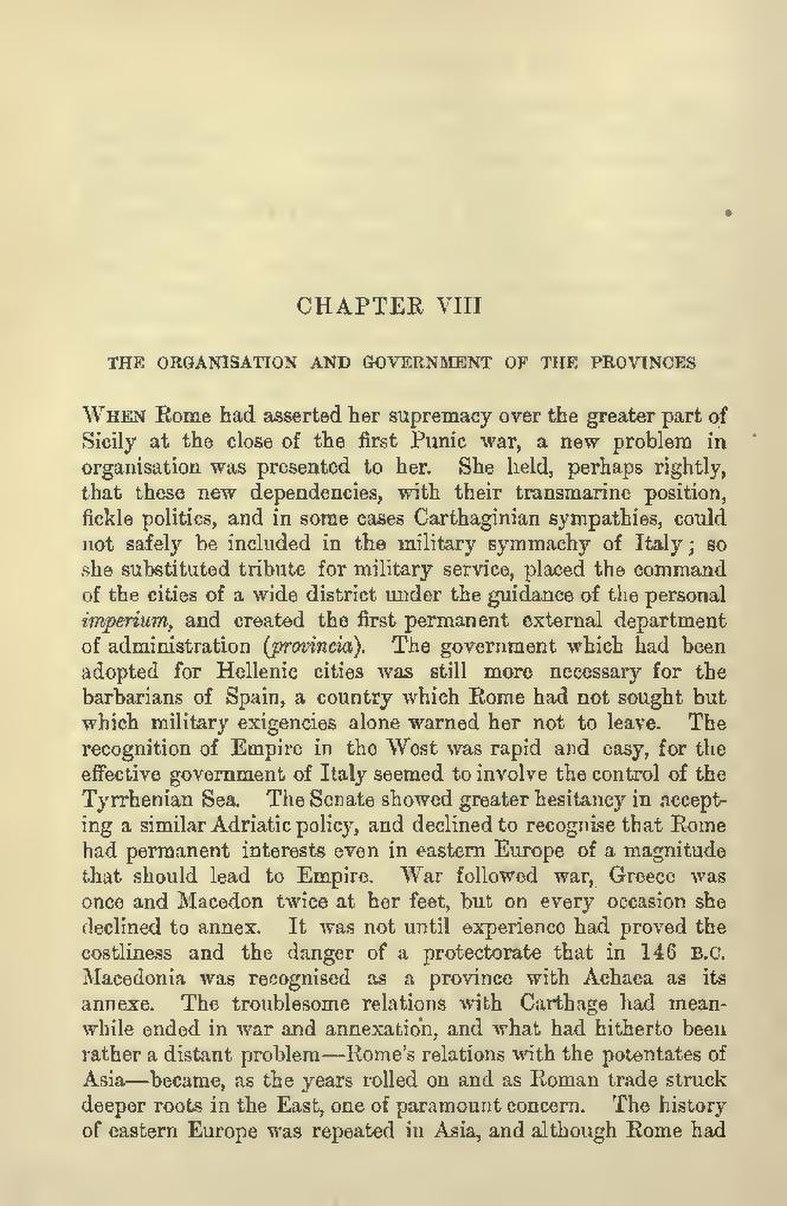CHAPTER VIII
THE ORGANISATION AND GOVERNMENT OF THE PROVINCES
When Rome had asserted her supremacy over the greater part of
Sicily at the close of the first Punic war, a new problem in
organisation was presented to her. She held, perhaps rightly,
that these new dependencies, with their transmarine position,
fickle politics, and in some cases Carthaginian sympathies, could
not safely be included in the military symmachy of Italy; so
she substituted tribute for military service, placed the command
of the cities of a wide district under the guidance of the personal
imperium, and created the first permanent external department
of administration (provincia). The government which had been
adopted for Hellenic cities was still more necessary for the
barbarians of Spain, a country which Rome had not sought but
which military exigencies alone warned her not to leave. The
recognition of Empire in the West was rapid and easy, for the
effective government of Italy seemed to involve the control of the
Tyrrhenian Sea. The Senate showed greater hesitancy in accepting
a similar Adriatic policy, and declined to recognise that Rome
had permanent interests even in eastern Europe of a magnitude
that should lead to Empire. War followed war, Greece was
once and Macedon twice at her feet, but on every occasion she
declined to annex. It was not until experience had proved the
costliness and the danger of a protectorate that in 146 B.C.
Macedonia was recognised as a province with Achaea as its
annexe. The troublesome relations with Carthage had meanwhile
ended in war and annexation, and what had hitherto been
rather a distant problem—Rome's relations with the potentates of
Asia—became, as the years rolled on and as Roman trade struck
deeper roots in the East, one of paramount concern. The history
of eastern Europe was repeated in Asia, and although Rome had
